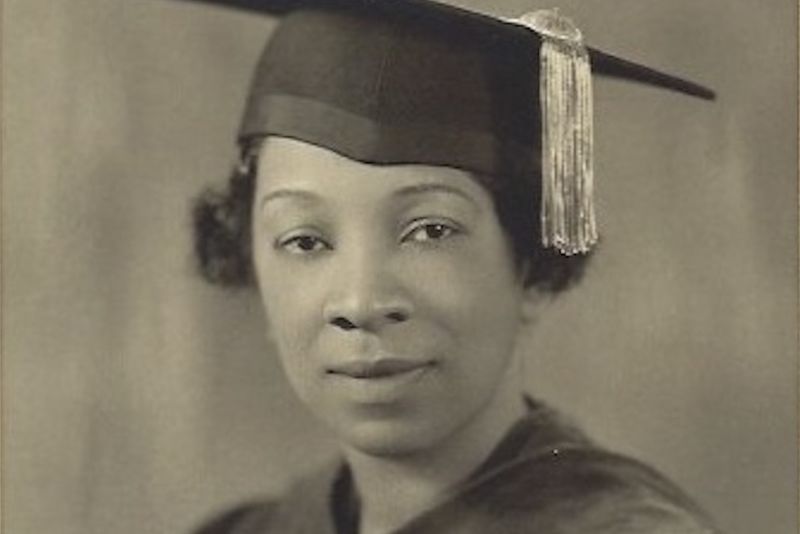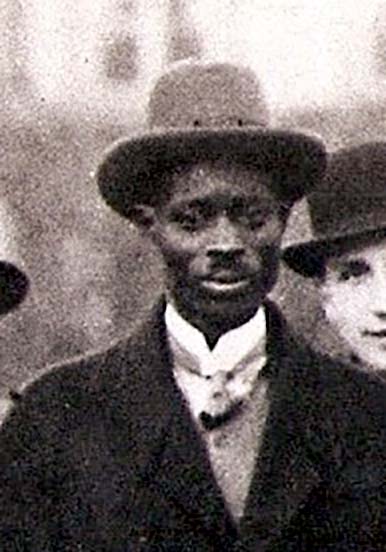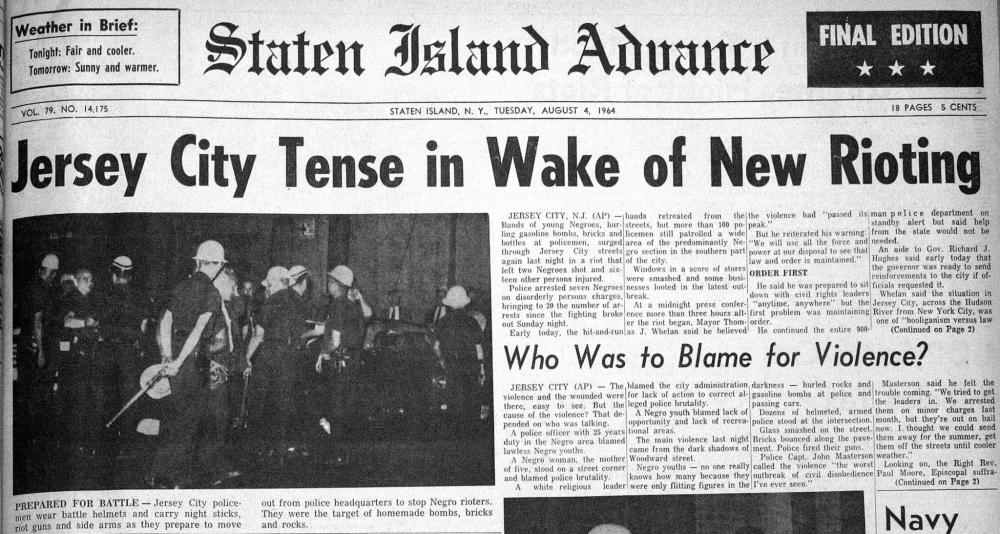Marion Thompson Wright, educator and historian, was the first African American woman to earn a Ph.D. in history in the United States. Wright was born on September 12, 1902, in East Orange, New Jersey, the daughter of Moses R. Thompson and Minnie Homes Thompson. Her parents separated, and her mother raised four children while working as a domestic servant in Newark, New Jersey.
Wright was one of only two black students at Barringer High School. At the age of sixteen, she married William Moss and the couple had two children, Thelma and James. Wright later separated from her husband and returned to high school where she graduated at the head of her class. She left her children with her husband to accept an undergraduate scholarship at Howard University in Washington, D.C. Howard University, like most educational institutions at that time, did not accept married or divorced woman as students, so Wright hid her marital status. When she divorced sometime in the 1920s, her children remained with her mother. While at Howard, Wright became active in women’s and peace organizations and majored in sociology. She finished her undergraduate education in 1927, staying at Howard to earn a Master of Arts (M.A) in history and education the following year.
In 1931 Wright began work on a doctorate degree at Teachers’ College, part of Columbia University in New York City. She married a second time to Arthur M. Wright but that marriage would also later end in divorce. At Columbia, she worked with Merle Curti, a leading intellectual and social historian, who at the time was one of the few Columbia faculty open to the study of African American history. During the Great Depression, Wright supported herself and her children while trying to complete her dissertation by working first for the Newark Department of Welfare and then for the New Jersey Emergency Relief Organization. In 1940 she completed her Ph.D. at Columbia University with the dissertation “The Education of Negroes in New Jersey” which was later published. With the completion of her degree, Wright became the first African American woman in the United States to have earned a Ph.D. in the field of history.
Wright returned to Howard University to teach. During her career, she published several articles in the Journal of Negro History and other scholarly publications. Most of her research and writing was on African Americans and their historical experiences in New Jersey. Wright also provided counseling services to students at Howard and directed student teachers there. In the 1950s, some of her research and published work would be used by attorneys for the National Association for the Advancement of Colored People (NAACP) in their arguments which led to the 1954 Brown v. Board of Education decision by the U.S. Supreme Court.
Despite being academically successful, Wright’s personal life was lonely. She had strained relationships with her children and family members. These issues, which she felt were caused by alienation she felt as an African American and woman scholar in a white and academically male-dominated world, contributed to her death by suicide on October 26, 1962, at the age of sixty.




















